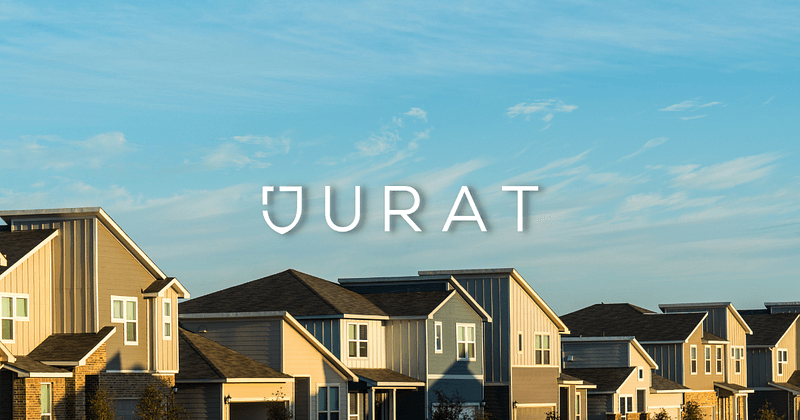Real estate, one of humankind’s oldest assets, is now available on-chain through the tokenization of physical property. Using blockchain technology, we can represent the property, or fractions of the property, with all the information, rights, and obligations associated with it as digital tokens — allowing for transfers with zero human interaction.…
While there are a number of proposed token standards for real estate, the most popular is the ERC-721 token, which is also used for non-fungible tokens (NFTs) like CryptoPunks. The ERC-721 token has been used in a number of high-profile projects, like the $30 million dollar Blockchain Mansion in California or the $29.5 million building in NYC which was listed on Opensea but never sold due to the sudden market down-turn.
However, just trying to turn a profit isn’t the main goal. EmpireDAO, led by Mike Fraietta, is using Web3 and real estate to expand communities and promote collaboration. Under a corporation, the DAO manages a 6-story building in NYC as a 24/7 multi-chain workspace with whole floors rented for blockchain networks and projects. However, small teams and builders occupy the collaborative floors through daily work passes. It’s similar to WeWork but for Web3, and realized the idea that digital communities can transcend into IRL physical spaces.
Expanding on the idea of bridging Web2 to Web3, MetaResidence is building luxury homes across digital and IRL-verses. Their properties mirror a 1:1 property in the Sandbox, giving homeowners a diversified investment opportunity in real and digital assets. A unique development to potential real estate transactions.
However, this week, we saw a historic sale, which represents one of the largest potential shifts in bringing real estate on-chain — the purchase of a single family home for $175,000 USDC on the platform Roofstock. Full details of the sale were covered by The Defiant and highlight the importance of this accomplishment.
This was one of the first properties bought on-chain without a traditional mortgage or bank, and without an agent, saving thousands in fees. The entire sale took place in a few minutes, with neither party ever meeting.
This marks the beginning of a new era for real estate with a wide variety of benefits:
- Property transfers can occur quickly with validation in minutes.
- Transaction fees can be up to 100x less than typical closing costs with an agent.
- Access to unique financing opportunities through DeFi/Crypto. Such as using other digital assets for loan procurement and payment. Or the possibility of collateralizing an NFT, say a BAYC to secure a loan and purchase real estate.
- More liquidity through digital markets.
- Having lower interest rates due to a wide variety of possible lenders.
- Using smart contracts to complete a number of closing steps such as document verification, trading, compliance and creation of an escrow account.
- Fractionalizing the property to have multiple owners. Giving more equitable financial opportunities for those trying to invest in high-end real estate but lack the capital.
However, while the possibilities seem somewhat endless, the losses could be substantial. Mainly if the token is lost or stolen…
So what if something like this happens?
The Defiant covered Roofstock’s response: “Sanjay Raghavan, the head of web3 initiatives at Roofstock, responded that the NFT can only be transferred to a recipient who possesses a non-transferable soul bound membership token and has doxxed their identity with the firm. “If you lose your private keys, we can de-platform the prior token and issue you a new one,” said Raghavan.
However, this type of system negates the core benefits of a decentralized platform as Roofstock, a centralized entity, holds sole power in providing customer support for lost tokens. What if Roofstock were to go out of business? What would happen to the affected home homeowners? Most likely they would try to go to court, but that presents a cumbersome suit to regain ownership of the property. Would the court order to bring the asset off-chain? Who would cover the legal fees of a blockchain specialized lawyer?
Why would you even risk such a valuable asset when a more secure and convenient solution already exists?
Integrate courts from the beginning using the Jurat Network.
This gives the owner the protections they have grown accustomed to while maintaining the benefits of a decentralized blockchain. Not only is the chain perfect for real estate transactions as it supports decentralized applications, but it offers the same legal rights you expect in Web2.
Let’s use the $175,000 USDC home as an example. With Jurat, if the house was purchased on-chain and the token was later stolen, the homeowner could quickly file a suit, include a Jurat ID generated from the website, and freeze the token on-chain. Then, once the judge reviews the argument, they will include the Jurat ID in their judgment to have the property returned to the original owner or an alternative wallet address. This process does not rely on the possible delays of a private company to rectify the issue or their potential dissolvement. This stressful situation is easily solved by the fact that legal remedies exist on-chain by using the Jurat network. It makes it a no-brainer for any big purchase and we are excited for the possibilities Jurat can offer in the future of real estate.
Interested in joining our community? Checkout our website and whitepaper here: https://jurat.io/
Then join our community here: https://t.me/juratnetwork

